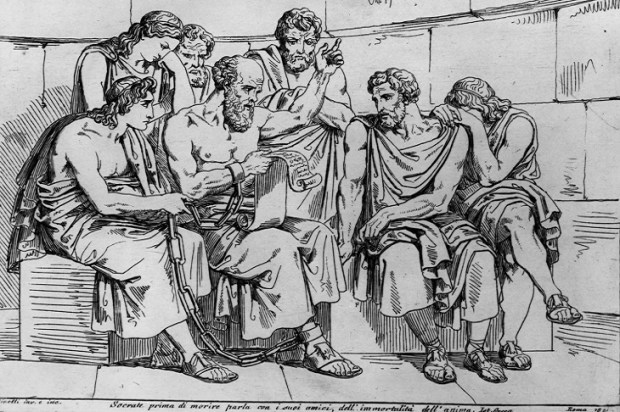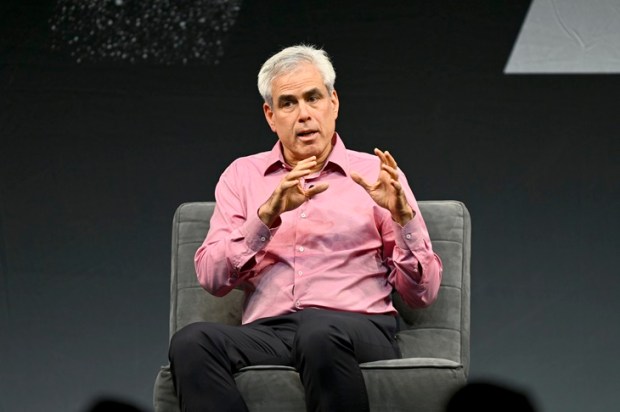Are people involved in a spiritual enterprise when they think, and therefore, when they teach? This might seem a far-fetched question to those who describe themselves as atheists because they would believe that the only influences in life are materialistic. Such a materialistic understanding leads us to believe that whatever we decide to do is a result of our nature (our physical inheritance and predispositions) and nurture (our social contexts past and present).
And if that is true, it does not matter who teaches our children. Because if all we do is predetermined by our genetics and upbringing, we do not have choice about what we do morally in life. It also means that information and skills are neutral, because there is no criteria bigger than our collective genetics and social habits. The result of this means leads to mechanistic social engineering, of which Critical Race Theory and Identity Politics is a recent manifestation.
It also means that the federal government’s aim to remove the choice of parents in terms of the faith orientation does not matter.
However, there is a problem with these ideas because they do not explain the thinking that humans do. This is not just the view of theists – those who believe there is a Creator God, or at least a Greater Mind. There are significant secular humanists who admit this. Richard Dawkins (in an interview in The Australian) lamented that he had not taught what science cannot do yet – including not understanding the origins and processes of self-consciousness. Thomas Nagel noted the same (and more) when he upset some of his fellow secular humanists in his book subtitled Why the materialist neo-Darwinian conception of nature is almost certainly false. Anthony O’hear from Oxford summarised the difficulty when he concluded his book, similar to Nagel’s, that, ‘Even though we and our capacities may have evolved in Darwinian ways, once evolved, we and our capacities take off in quite un-Darwinian ways.’
John Lennox, also from Oxford, quotes philosopher David Chalmers, and though he is strongly inclined to materialism, nevertheless argues: ‘Reductive explanation of consciousness is impossible, and I even argue for a kind of dualism.’ Lennox applies this principle to artificial intelligence, about which there can be some excitement and uncertainty with regards to education, by quoting Mellencamp who quipped that ‘the “artificial” in artificial intelligence is real’.
What has this got to do with teaching? If nothing else, teaching is about thinking which not only involves, but requires, self-consciousness. This means that when we think we somehow (mysteriously) use our self-consciousness, which Chalmers notes is only possible if we accept there are non-physical aspects of reality, in addition to physical aspects of reality. Nature and nurture influences are real and should not be ignored. But, again mysteriously, we have capacity to decide what to do with our nature and nurture. I often heard counselling room discussions turn from focusing on the real pain in the person’s life, to reflection on, ‘What can I do about this?’
Does this happen in the classroom? If the teacher is interested in more than the transfer of information and skills, then yes. But here is the rub – even if the teacher does not intend to explore what we should do with what we are learning, the students are picking up the moral direction of the teacher anyway. They know. It is tempting to call it ‘instinct’, but it is more than animal genetics. It is those subtle comments, habits and ways of living that communicate the teachers’ life directions. The students discern it.
I once had a Year 11 student ask me what I thought about dialectical materialism – he had been reading and enjoying some early Marx and Hegel. I can’t remember if he got into this endeavour through history or some other subject, but he became interested to the point of testing personal commitment. That extended for over twelve months – and I could retell hundreds of similar stories.
Teaching mathematics? Why does it even work? That is question that brings wonder to the discipline, with the increasing understanding of the young. If ignored, the discipline becomes a means to an end, which is probably why it sometimes is at threat of dying.
Teaching science? What of some of the greatest minds, not theists, who were desperate to explain first causes of the cosmos, or the information for initial DNA, or again, why the brain cannot explain the capacities of the mind? Or is it simply a means to an end for comfort and safety (forget freedom)?
Teaching art or music – can we separate art from mess and music from noise without a framework that transcends our individual experience? Or is ‘my truth’, which cannot explain anything outside my own emotivism, the benchmark?
And on it goes. This discussion through the federal government about who faith-based schools can and cannot employ, based on some simplistic definitions of religious belief, is based on ignorance and is shrouded in shallow and pathetically pretentious logic. All teaching, if we are interested in our students as human beings, and not simply as animals or machines, involves students learning with their hearts and minds and, not just their brains. To suggest otherwise demeans the profession and is disrespectful to the students.
Parents know this and choose accordingly. They understand a school beyond the outward culture of a place that achieves certain marks on standard tests. They come to know (in the old-fashioned meaning of engaging the heart) their schools as communities. They know not just the patterns of the routines, but the habits of the characters in their children’s lives. They want teachers to be open about the lens through which they view life. The pretence of neutrality wore thin some time ago. Instead, parents want places of acceptance, care, and transparency, where students are invited to think deeply in safe contexts, even if their thinking is not orthodox to that place.
If even the WA Premier knows that parents need to parent, and that children do not belong to the State, then why can’t the Prime Minister and his anti-discrimination bureaucrats?

























